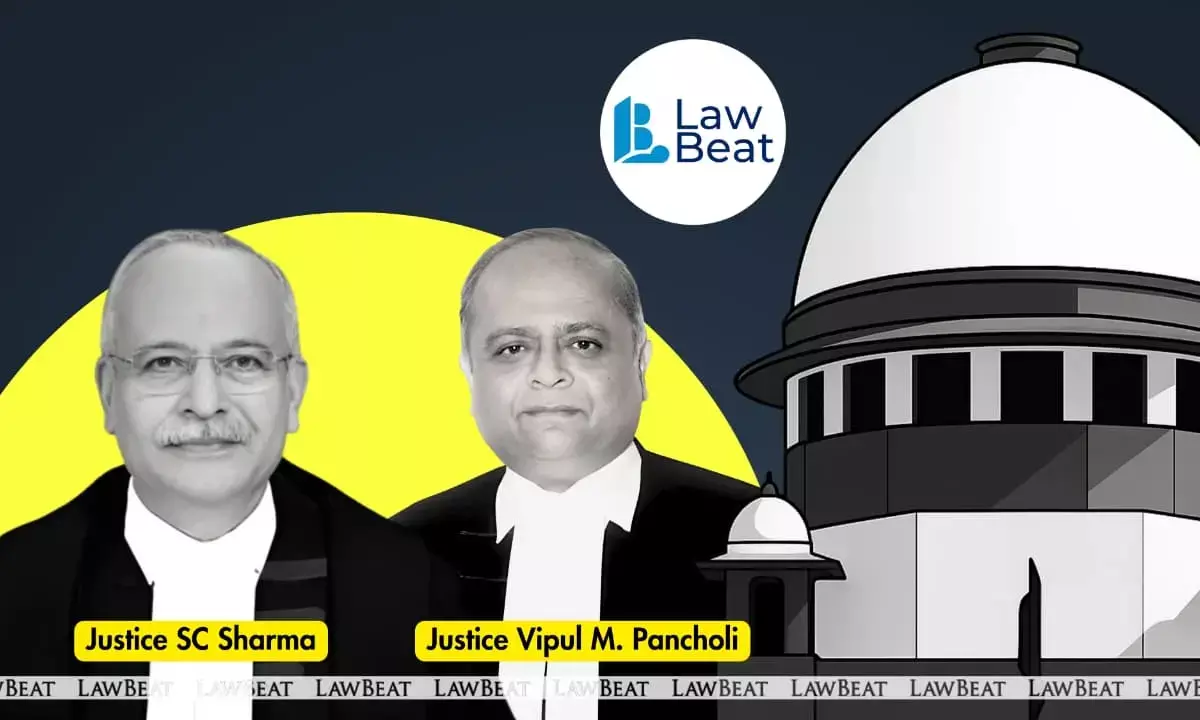Can a 2005 Public Auction for Revenue Recovery Be Challenged After 4 Years? Supreme Court Says No

The Supreme Court confirms the Madras High Court judgment on the Tamil Nadu Revenue Recovery Act, validating the property auction
The Supreme Court recently upheld the Madras High Court’s refusal to interfere with a public auction initiated by revenue authorities to recover long-pending arrack shop arrears, holding that the sale could not be disturbed since the concerned notice was never challenged through the statutory mechanism provided under law.
A bench of Justices Satish Chandra Sharma and Vipul M. Pancholi said Sections 37-A and 38 of the Tamil Nadu Revenue Recovery Act provide a complete framework for setting aside a sale of immovable property conducted under the Act, either by depositing the dues within time or by alleging material irregularity, mistake or fraud. Both provisions, the bench noted, impose a strict 30-day limitation from the date of auction.
Court dismissed a challenge brought by the legal heirs of a Tamil Nadu arrack shop contractor whose property was auctioned by revenue authorities in 2005 for long-pending arrears, holding that the challenge was hopelessly delayed and filed without exhausting statutory remedies. Court affirmed that once a public auction is concluded and later confirmed, the rights of the auction purchaser cannot be disturbed except in cases of proven fraud or substantial irregularity.
"This statutory framework is mandatory and self-contained, leaving little room for collateral challenges once the period expires,'' the bench stressed.
The case arose from arrears owed by one Ramaswamy Udayar, who had successfully bid for arrack shops in Thevaiyar and Valikandapuram villages for the year 1972–73 but failed to remit the required payments. After years of inaction, the District Collector of Perambalur secured an ex-parte civil court decree in 1987 for Rs. 56,170.20. Udayar died the following year. His widow, Kolanjiammal, and her children claimed they were unaware of these proceedings for many years.
In 2005, the authorities initiated revenue recovery proceedings and issued auction notices for two family properties in Mettupalayam South Village. The appellant and one of her sons approached the Madras High Court, challenging the auction notices and arguing that they had not received proper notice and that long-standing family disputes over the properties were still pending. During the pendency of these petitions, the High Court directed them to make partial deposits, after which the family deposited more than Rs. 3.4 lakh.
Despite these developments, the authorities conducted the auction on 29 July 2005, and the winning bidder deposited the entire sale amount the same day. Although the High Court had passed an interim order restricting confirmation of the sale, there was no stay on the auction itself. The sale was ultimately confirmed on 23 July 2008.
In the High Court, the family argued that the auction was invalid because it was held during the pendency of the writ petition and because the authorities had issued a second auction notice while the first challenge was still pending. However, the High Court dismissed the writ petitions, writ appeals, and a subsequent review, holding that the family had failed to take the mandatory statutory steps required to set aside an auction conducted under the Tamil Nadu Revenue Recovery Act.
Under Sections 37-A and 38 of the Act, a person aggrieved by an auction must either deposit the dues and seek restoration or challenge the auction on grounds of material irregularity, mistake, or fraud. Crucially, such applications must be filed within 30 days from the date of sale. The appellant did not invoke either provision, and the High Court held that this omission barred any later challenge. By the time they approached the court again, more than four years had passed.
Before the Supreme Court, the appellant argued that the interim order staying the confirmation of the sale rendered a statutory application unnecessary, and that the deposits made pursuant to court orders satisfied the alleged dues. The Bench rejected these contentions, holding that the interim protection did not suspend the statutory obligation to challenge the auction within 30 days. Deposits made in compliance with interim directions also did not amount to a statutory application under Section 37-A.
Relying on prior judgment warning courts against interfering with revenue recovery through interim orders, court emphasised that once a sale is confirmed, significant rights vest in the auction purchaser. In this case, the property had been registered in the purchaser’s name and later sold to bona fide third parties.
Finding no illegality, fraud, or violation of natural justice, court upheld the High Court’s concurrent findings and declined to reopen the long-finalised auction. The appeal was dismissed in its entirety.
Case Title: Kolanjiammal (D) Thr LRs Vs The Revenue Divisional Officer Perambalur District & Ors
Judgment Date: November 14, 2025
Bench: Justices Satish Chandra Sharma and Vipul M Pancholi
